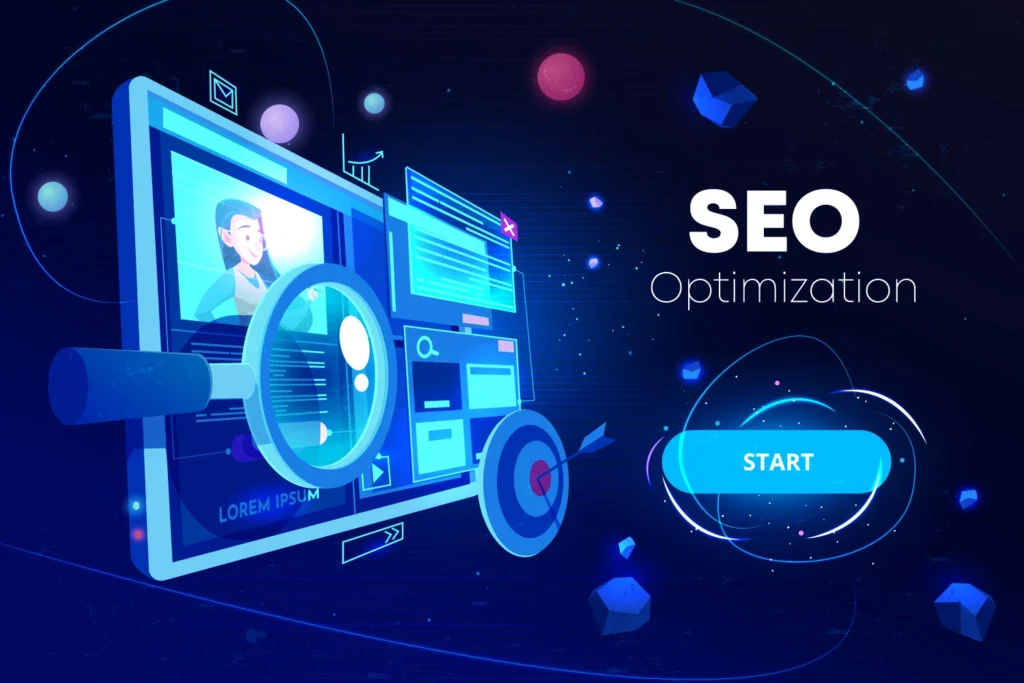Seo Optimizer
Seo Optimizer

An SEO optimizer typically refers to tools or techniques used to improve a website’s visibility and ranking on search engines like Google. SEO (Search Engine Optimization) aims to make a website more appealing to search engines, which in turn drives more organic traffic.
Here’s a breakdown of SEO optimization:
1. On-Page SEO
On-page SEO focuses on optimizing elements within your website that you can control. This includes:
- Title Tags: Descriptive and keyword-rich titles for each page.
- Meta Descriptions: Clear and compelling meta descriptions for each page.
- Headings (H1, H2, etc.): Proper use of heading tags to structure content.
- URL Structure: Short, descriptive, and keyword-rich URLs.
- Internal Linking: Linking to other pages on your site to improve navigation and spread link equity.
- Keyword Optimization: Strategically placing targeted keywords in the right spots (titles, headings, and throughout the content) without keyword stuffing.
- Image Alt Text: Descriptive alt text for images, which helps with both SEO and accessibility.
- Content Quality: Content should be valuable, relevant, and engaging, with a focus on solving user intent.
2. Off-Page SEO
Off-page SEO involves activities outside of your website that can impact your rankings:
- Backlinks: Acquiring high-quality backlinks from reputable websites.
- Social Media: Activity on social platforms that can drive traffic and engagement.
- Online Reviews: Positive reviews and feedback from customers can improve brand credibility and rankings.
- Guest Blogging: Writing guest posts on reputable websites to earn backlinks and increase exposure.
3. Technical SEO
Technical SEO ensures that a website’s infrastructure is optimized for search engines. This includes:
- Site Speed: Ensuring fast loading times for pages.
- Mobile-Friendliness: Making sure your site is responsive and looks good on mobile devices.
- XML Sitemap: Creating and submitting an XML sitemap to help search engines crawl and index pages.
- Robots.txt: Ensuring the correct files are accessible to search engines and blocking unnecessary ones.
- HTTPS: Using SSL certificates to make your site secure and trustworthy.
- Structured Data: Implementing schema markup to help search engines understand the content of your pages better.
4. Keyword Research
Finding the right keywords is essential for SEO optimization. Tools like Google Keyword Planner, Ahrefs, and SEMrush can help identify:
- High-traffic keywords.
- Long-tail keywords (specific phrases that drive targeted traffic).
- Competitor keywords (what your competitors are ranking for).
- Search intent (informational, transactional, navigational).
5. Content Strategy
Creating high-quality, engaging, and relevant content is at the core of any SEO strategy. This includes:
- Blog Posts: Regularly updated blog posts with fresh, valuable content.
- Evergreen Content: Content that remains relevant over time and attracts consistent traffic.
- Video Content: Videos can enhance engagement and provide another medium for ranking on search engines.
- Infographics and Visual Content: Visuals can increase user interaction and shares.
6. SEO Tools for Optimization
To optimize your site effectively, many SEO tools can help. Some popular tools include:
- Google Analytics: To track traffic and user behavior.
- Google Search Console: To monitor your site’s performance and indexing status.
- Ahrefs: For backlink analysis, competitor research, and keyword discovery.
- SEMrush: A comprehensive SEO suite for keyword research, site audit, and competitive analysis.
- Moz: Offers tools for keyword research, link building, and site audits.
- Yoast SEO (for WordPress): A popular plugin that helps optimize on-page SEO.
7. Local SEO
If you’re a local business, optimizing for local search is crucial. This involves:
- Google My Business: Claiming and optimizing your Google My Business profile.
- NAP Consistency: Ensuring your Name, Address, and Phone number are consistent across all online directories.
- Local Citations: Getting listed in local business directories.
- Customer Reviews: Encouraging positive reviews on Google and other platforms.
